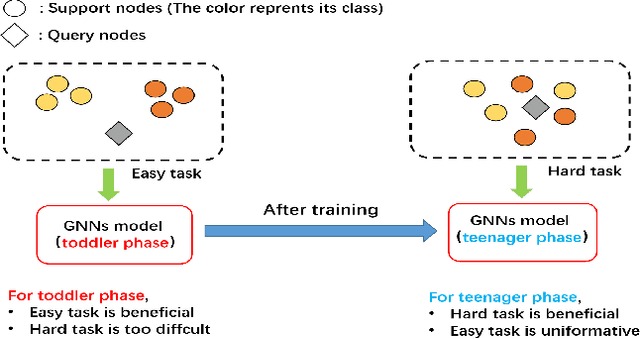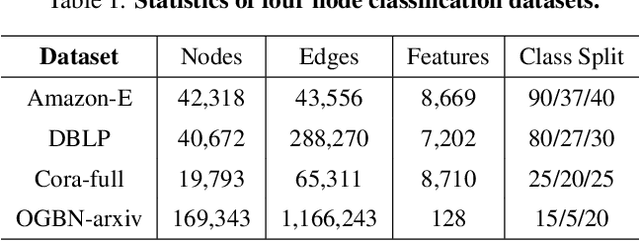CPT: Competence-progressive Training Strategy for Few-shot Node Classification
Paper and Code
Feb 01, 2024



Graph Neural Networks (GNNs) have made significant advancements in node classification, but their success relies on sufficient labeled nodes per class in the training data. Real-world graph data often exhibits a long-tail distribution with sparse labels, emphasizing the importance of GNNs' ability in few-shot node classification, which entails categorizing nodes with limited data. Traditional episodic meta-learning approaches have shown promise in this domain, but they face an inherent limitation: it might lead the model to converge to suboptimal solutions because of random and uniform task assignment, ignoring task difficulty levels. This could lead the meta-learner to face complex tasks too soon, hindering proper learning. Ideally, the meta-learner should start with simple concepts and advance to more complex ones, like human learning. So, we introduce CPT, a novel two-stage curriculum learning method that aligns task difficulty with the meta-learner's progressive competence, enhancing overall performance. Specifically, in CPT's initial stage, the focus is on simpler tasks, fostering foundational skills for engaging with complex tasks later. Importantly, the second stage dynamically adjusts task difficulty based on the meta-learner's growing competence, aiming for optimal knowledge acquisition. Extensive experiments on popular node classification datasets demonstrate significant improvements of our strategy over existing methods.
 Add to Chrome
Add to Chrome Add to Firefox
Add to Firefox Add to Edge
Add to Edge